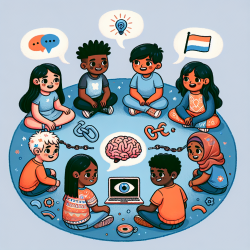As a Special Education Director, ensuring that every student receives the support they need is paramount. One of the critical aspects of this is understanding the dispute resolution options available under Montana's IDEA Special Education guidelines. This blog will provide a straightforward overview of these options, making it easier for parents, educators, and advocates to navigate the system effectively.
Early Assistance Program (EAP)
The Early Assistance Program (EAP) is an informal, voluntary dispute resolution process designed to help with issues related to IDEA. It includes technical assistance for IDEA requirements, resolution of written state complaints, and communication between parties.
- Who Can Initiate: Parents, school district staff, advocates, and other members of the special education community.
- Time Limits: None.
- Process: Informal and voluntary.
- Who Oversees: Director of EAP.
- Decision Makers: Parents and public agencies.
- Timeline to Resolve: None, unless part of the written state complaint process.
- Outcome: Parties reach an agreement without undermining relationships.
IEP Meeting Facilitation
IEP Meeting Facilitation is another informal, voluntary dispute resolution process where an impartial facilitator assists the IEP team in resolving disagreements during the development of the IEP.
- Who Can Initiate: Parents or public agencies, but it must be voluntary for both parties.
- Time Limits: None.
- Process: Informal and voluntary.
- Who Oversees: IEP facilitator.
- Decision Makers: IEP Team, including parents.
- Timeline to Resolve: No specific timeline.
- Outcome: Consensus on the IEP.
Written State Complaint
A Written State Complaint is a formal process where a complaint is filed alleging that a public agency has not followed IDEA or Montana Special Education laws.
- Who Can Initiate: Any individual or organization.
- Time Limits: Must allege a violation that occurred within 1 year prior to the date the complaint is filed.
- Process: Formal.
- Who Oversees: Office of Public Instruction, Dispute Resolution Office.
- Decision Makers: Office of Public Instruction, Dispute Resolution Office.
- Timeline to Resolve: Final report issued no later than 60 calendar days from the date the complaint is filed.
- Outcome: A written decision with findings and conclusions, including corrective actions if necessary.
Mediation
Mediation is an informal, voluntary process where a mediator assists parties in resolving disagreements related to any matter arising under IDEA.
- Who Can Initiate: Parents or public agencies, but it must be voluntary for both parties.
- Time Limits: None.
- Process: Informal and voluntary.
- Who Oversees: Mediator.
- Decision Makers: Parents and public agencies.
- Timeline to Resolve: None.
- Outcome: A signed, legally enforceable, written agreement.
Due Process Complaint/Hearing Request
A Due Process Complaint/Hearing Request is a formal legal proceeding used to resolve disagreements relating to the identification, evaluation, educational placement, or provision of a free appropriate public education (FAPE).
- Who Can Initiate: Parents or public agencies.
- Time Limits: Two years from when the party knew or should have known of the alleged problem.
- Process: Formal.
- Who Oversees: Hearing officer.
- Decision Makers: Hearing officer.
- Timeline to Resolve: Decision issued within 45 calendar days from the end of the resolution period.
- Outcome: A written decision with findings of fact and conclusions of law.
Expedited Due Process Hearing
An Expedited Due Process Hearing is a formal proceeding used solely when a parent or adult student disagrees with a school district’s discipline-related decision that affects the student’s placement.
- Who Can Initiate: Parents or public agencies.
- Time Limits: Two years from when the party knew or should have known of the alleged problem.
- Process: Formal.
- Who Oversees: Hearing officer.
- Decision Makers: Hearing officer.
- Timeline to Resolve: Hearing held within 20 school days of the request being filed, decision issued within 10 school days of the hearing.
- Outcome: A written decision with findings of fact and conclusions of law.
For more information, please follow this link.










